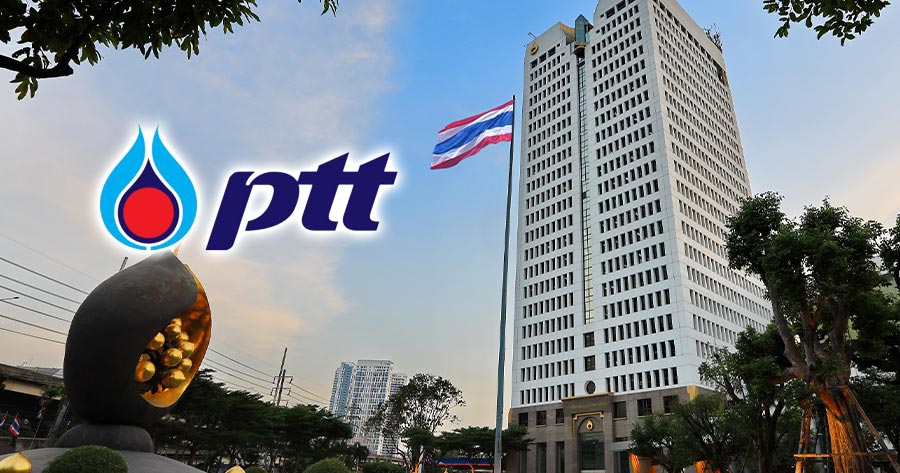JPMorgan maintains an “Overweight” rating for Thailand’s state-owned enterprise energy company, PTT Public Company Limited (SET: PTT), noting it has performed well compared to the main bourse, SET Index by approximately 13% year-to-date (YTD).
The stock is considered inexpensive, trading at around 0.8x Price/Book Value (P/BV) with an estimated dividend yield of 6-7%. However, the price target has been slightly reduced to Bt38.00 per share from Bt40.00 per share.
Downstream business restructuring:
PTT is planning a significant reorganisation of its refining and petrochemical businesses (TOP, PTTGC, IRPC). This is a key focus for PTT, with significant progress expected by 2026. PTT is considering bringing in strategic partners or spinning off some downstream businesses, but is unlikely to merge the three units.
Key takeaways from analyst briefing:
PTT aims for Bt30 billion in EBITDA (Earnings Before Interest, Taxes, Depreciation, and Amortization) uplift through cost reduction and revenue enhancement. The company anticipates Bt2 billion in gains by 2026 through digital transformation and productivity improvements. A one-time expense of Bt2.2 billion is related to PTTGM due to the recognition of a profit share agreement with Aztiq HK.
Meanwhile, PTT is exploring EV charging in partnership with PTTOR. For hydrogen energy, PTT will initially focus on overseas investments
Model Update:
FY25E Gas BU EBITDA is adjusted marginally lower by 4% due to a slower volume recovery for key sub-segments (SM, GSP), which is partially offset by lower costs. Earnings estimates for 2025 and 2026 have been slightly reduced due to lower earnings from downstream units (TOP, PTTGC, GPSC).
Additionally, JPMorgain maintained an Overweight rating on PTT, seeing a potential upside from the resolution of feedstock cost transfer to PTTGC, which could improve PTT’s Gas BU EBITDA. Meanwhile, potential policy changes and restructuring of the EV business and downstream operations could unlock value and improve capital allocation.





